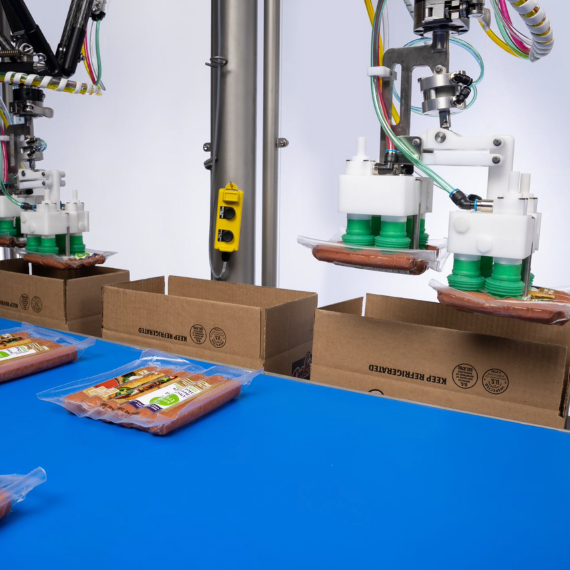In an era where precision and efficiency are paramount, the adoption of robotic solutions in industrial settings is no longer just an option but a necessity. The packaging industry, in particular, has witnessed a significant transformation thanks to the advent of technologies such as robotic cartoning systems. These innovations are not merely enhancing the speed and accuracy of packaging but are also setting new standards for operational efficiency.
The Impact of Robotic Cartoning System
The Robotic cartoning system represent a significant leap forward in the mechanization of packaging lines. These systems automate the process of filling cartons with products, sealing them, and preparing them for distribution. Employing state-of-the-art technology, these systems are designed to handle products delicately yet swiftly, ensuring that items are securely packed without sacrificing throughput. The integration of such systems can dramatically reduce the manpower needed on production lines, cutting costs and minimizing human error.
Adapting to Industry Needs
The flexibility of robotic cartoning solutions allows them to be adapted to a wide range of products and industries, from food and beverages to pharmaceuticals and cosmetics. This adaptability is crucial as it provides businesses with the agility to respond to changing market demands and regulations without significant reconfiguration of their production lines.
Future Trends in Robotic Packaging
As industries continue to evolve, so too do the technologies required to support them. Future advancements in robotic packaging are expected to incorporate greater levels of artificial intelligence and machine learning, enabling even more sophisticated decision-making and automation capabilities. These developments will further enhance the ability of robotic systems to learn from and adapt to new packaging challenges as they arise.
Advantages of Robotic Case Packers
Beyond cartoning, the broader category of packaging automation includes robotic case packers. These systems are crucial for efficiently organizing and packing products into larger cases or boxes ready for shipment. Robotic case packers are highly prized for their precision and consistency, ensuring that products are not only well-protected during transit but are also presented attractively upon unboxing. This is particularly important in consumer-focused industries where the unboxing experience can influence brand perception.
Conclusion
The integration of technologies such as robotic cartoning systems and robotic case packers is more than just an enhancement of industrial capabilities—it is a redefinition of what is possible in the packaging industry. These systems not only streamline operations but also support the growth of businesses by ensuring that products are handled efficiently and with care. As automation technology continues to advance, its role in industrial applications is set to become even more integral, promising a future where robotic systems are commonplace in ensuring operational excellence across various sectors.







